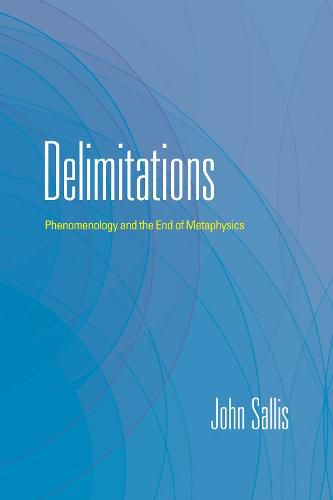Readings Newsletter
Become a Readings Member to make your shopping experience even easier.
Sign in or sign up for free!
You’re not far away from qualifying for FREE standard shipping within Australia
You’ve qualified for FREE standard shipping within Australia
The cart is loading…






Since Hegel, philosophers have declared repeatedly that metaphysics is at an end, a pronouncement that has sparked much contemporary philosophical debate. What exactly does the end, or closure, of metaphysics mean, and what are the implications of this view?
John Sallis characterizes the end of metaphysics as a limit, or horizon, both enclosing metaphysical thought and opening the field of thinking beyond it. He elaborates five areas in which the boundaries of thinking are extended: imagination as an opening power, the radicalizing of phenomenology’s injunction to attend to the things themselves, Heidegger’s shift of thinking toward an opening or clearing, archaic closure through a return to Plato and Heraclitus, and the nonidentity that takes place in the act of delimitation. This last question is developed in relation to Husserl’s project of a pure phenomenology, to the debate between hermeneutics and deconstruction, and to the secluding of ground announced in Schelling’s thought.
$9.00 standard shipping within Australia
FREE standard shipping within Australia for orders over $100.00
Express & International shipping calculated at checkout
Since Hegel, philosophers have declared repeatedly that metaphysics is at an end, a pronouncement that has sparked much contemporary philosophical debate. What exactly does the end, or closure, of metaphysics mean, and what are the implications of this view?
John Sallis characterizes the end of metaphysics as a limit, or horizon, both enclosing metaphysical thought and opening the field of thinking beyond it. He elaborates five areas in which the boundaries of thinking are extended: imagination as an opening power, the radicalizing of phenomenology’s injunction to attend to the things themselves, Heidegger’s shift of thinking toward an opening or clearing, archaic closure through a return to Plato and Heraclitus, and the nonidentity that takes place in the act of delimitation. This last question is developed in relation to Husserl’s project of a pure phenomenology, to the debate between hermeneutics and deconstruction, and to the secluding of ground announced in Schelling’s thought.